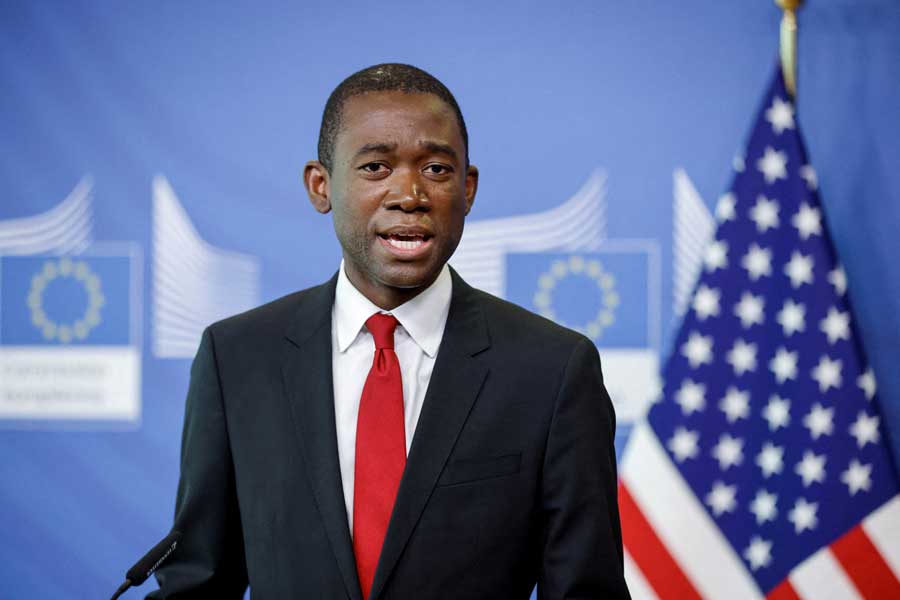FX unification, subsidy removal difficult decisions for Nigeria’s prosperity — US
The United States of America (USA) yesterday said that the unification of the foreign exchange and the removal of fuel subsidy by President Bola Ahmed Tinubu’s administration are difficult decisions for the prosperity of Nigeria. United States Deputy Secretary of the Treasury, Wally Adeyemo, who said this in Lagos during an address at the Lagos […]

The United States of America (USA) yesterday said that the unification of the foreign exchange and the removal of fuel subsidy by President Bola Ahmed Tinubu’s administration are difficult decisions for the prosperity of Nigeria.
United States Deputy Secretary of the Treasury, Wally Adeyemo, who said this in Lagos during an address at the Lagos Business School, stressed that decisive actions by the Nigerian government and the shared effort of the Nigerian people could create the changes needed to unlock the unrealized opportunity of Africa’s most populous country.
While reiterating the commitment of President Joe Biden to strengthen the US-Nigeria relationship, he highlighted four cardinal steps needed for the type of growth that creates economic opportunity for the Nigerian people.
“First, Nigeria needs a stable Naira. You stop into any small business or market, and you will hear shop owners and customers bemoaning the lack of a stable currency. Unifying Nigeria’s foreign exchange rates will create the kind of macroeconomic stability that is essential to attracting foreign investment. We commend the difficult steps your government has already taken to accomplish this goal. The path to unification is not easy, but going backward would be even worse.
“Second, the government needs to articulate and implement a fiscal strategy that will provide the resources to make critical investments. I recognize the decision to end fuel subsidies is hard for many Nigerian households, but it was an important early step to create resources the government can use to invest in physical and digital infrastructure, education, and a strong small business environment,” he said.
While calling on the government to channel a good percentage of the resources made into agriculture, he urged for the rooting out of corruption and the perception of corruption in the business environment. He said many Nigerians have the fear that corruption and mismanagement will dash their hopes that the benefits of these reforms will enrich the people rather than the powerful.
“Creating economic opportunity will require a government-driven effort that addresses these fears by shining a light on corruption, holding people accountable, and taking meaningful steps to improve the business climate.
“For example, Nigeria is a hotbed for digital entrepreneurship. Taking simple steps like moving government functions online, so Nigerians can apply for business licenses and visas using their smartphones and computers will help improve services and reduce opportunities for fees to go into pockets rather than government coffers. This new government also has the ability to fight skepticism by making reforms that will allow the Nigerian people to better understand how federal, state, and local resources are being used,” he counselled.
Adeyemo also called on the government to protect the integrity of the financial system, stressing that securing the banking system will help reduce the ability of criminals, terrorists, and others to illicitly use the Nigerian financial system.
He maintained that the US government was ready to partner Nigeria in implementing these reforms because a strong and prosperous Nigeria is also good for the United States of America.
